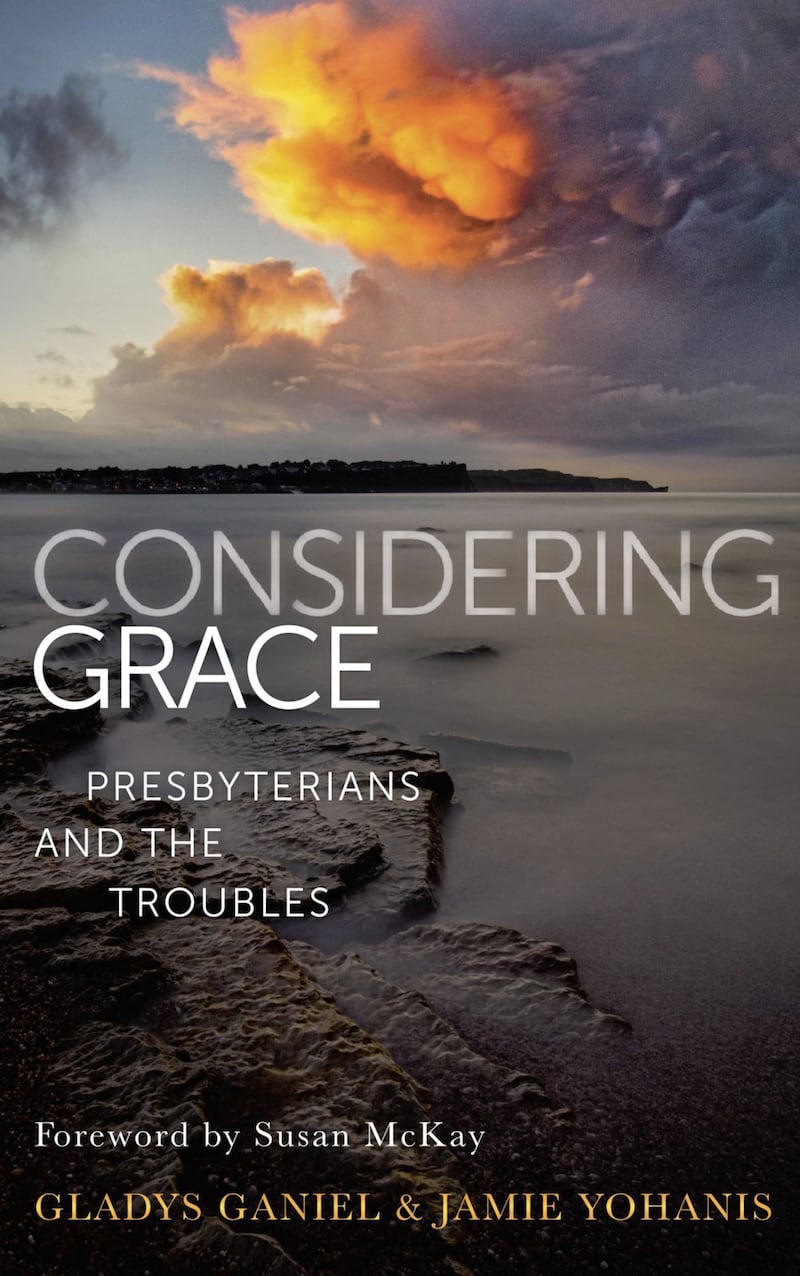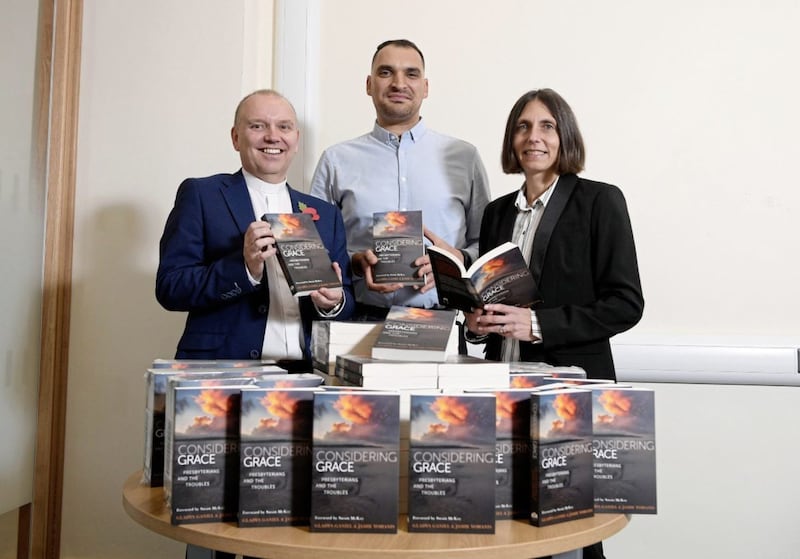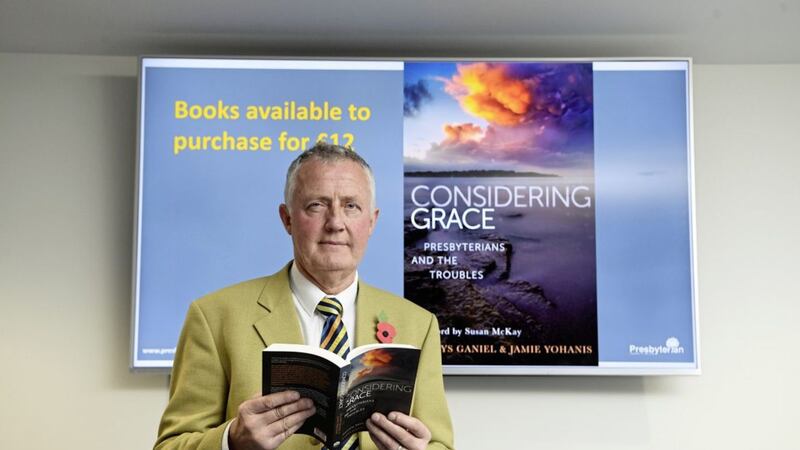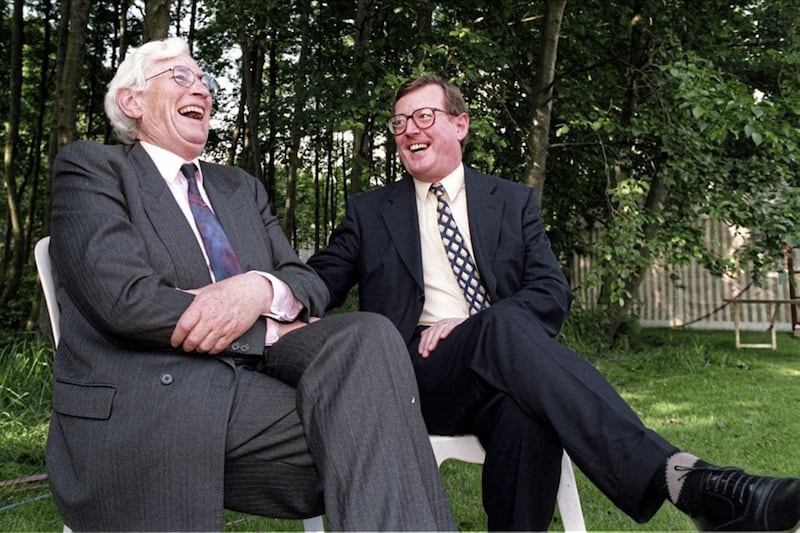IT was Seamus Mallon who memorably described the Good Friday Agreement of 1998 as "Sunningdale for slow learners".
Inevitably, a central figure in the campaign against the power-sharing deal, which culminated in 1974's Ulster Workers' Council strike, was the Rev Ian Paisley.
The utter futility of the death, mayhem, injury, sectarianism and hurt that ensued as the Troubles intensified cannot - and should not - be laid solely on the DUP founder's broad shoulders.
But it is legitimate to consider to what extent Paisley and Paisleyism - that peculiar seam of religion and politics he mined so assiduously - contributed to the prolonging of the conflict.
The spectre of Paisley casts its shadow on the pages of Considering Grace, a valuable new addition to the canon of Troubles literature published this week.
Although there are contributions from, among others, Mr Mallon, the book's focus is on the experience of Protestants, particularly Presbyterians.
Authors Gladys Ganiel and Jamie Yohanis interviewed 120 people from all walks of life for the book, the majority from the border counties where Protestants often felt particularly vulnerable and under siege.
It was commissioned by the Presbyterian Church in Ireland, through its 'Dealing with the Past' group, but Considering Grace doesn't spare the denomination criticism about what it did - or did not - do during the Troubles.
Such self-criticism, or at least the openness to it, is welcome and may prove essential as broader society continues the struggle to work out how to deal with the past.
A fear of Paisley - including that his Free Presbyterian Church would 'sheep steal' - meant too few Presbyterian ministers and leaders were brave enough to criticise him.
This, say the authors, led to the Presbyterian Church becoming "more conservative and less open to peace-making than it might have been". Fear of the Orange Order compounded the effect in some areas.
One cleric explains how "we were under pressure from the Paisleyite faction": "A lot of ministers would have loved to have said and done more but that Paisley threat inhibited them from saying too much, too plainly, too publicly."
A fear of Paisley - including that his Free Presbyterian Church would 'sheep steal' - meant too few Presbyterian ministers and leaders were brave enough to criticise him. This led to the Presbyterian Church becoming "more conservative and less open to peace-making than it might have been"
A contributor referred to as Jane is more direct. Her 25-year-old son, a police officer, was murdered on duty. No-one was ever arrested for the killing.
"If Paisley had been more Christian, I don't think Alan would be dead today," she laments.
"I think the Troubles would have gotten nowhere and there wouldn't have been so many lives lost.
"And then when he got to the top, he sat down with a murderer."
Jane's story is one of many moving accounts of tremendous sorrow and pain in the book.
Among them is the Rev David Cupples talking about being a 'first responder' in the wake of the IRA's bombing of Enniskillen on Remembrance Sunday in 1987.
Eleven were killed in the blast and 33 injured; six of the dead were from Mr Cupples's congregation.
After conducting the last funeral, he learned that Ronnie Hill, a member of the church, had lapsed into a coma.
Sitting with his clerk of session, a lay office holder in Presbyterian congregations, Mr Cupples feared the trauma and stress meant he was "about to go over the edge".
"But when I started to pray, I cried in a way I never cried in my life, before or since. There was just this absolutely enormous reservoir of pain and sorrow that built up during the course of the week."
Countless similar reservoirs of sadness, helplessness and anger have washed over us since 1969, since Sunningdale, since the Good Friday Agreement.
Even more than concerns over Brexit, coming to terms with that past is essential to Northern Ireland's future.
The book holds out hope for a gracious remembering that is ethical and shared, where forgiving does not mean forgetting.
But as we descend into yet another election campaign laced with sectarianism, where will grace be found?
Considering Grace: Presbyterians and the Troubles, by Gladys Ganiel and Jamie Yohanis, is published by Merrion Press











